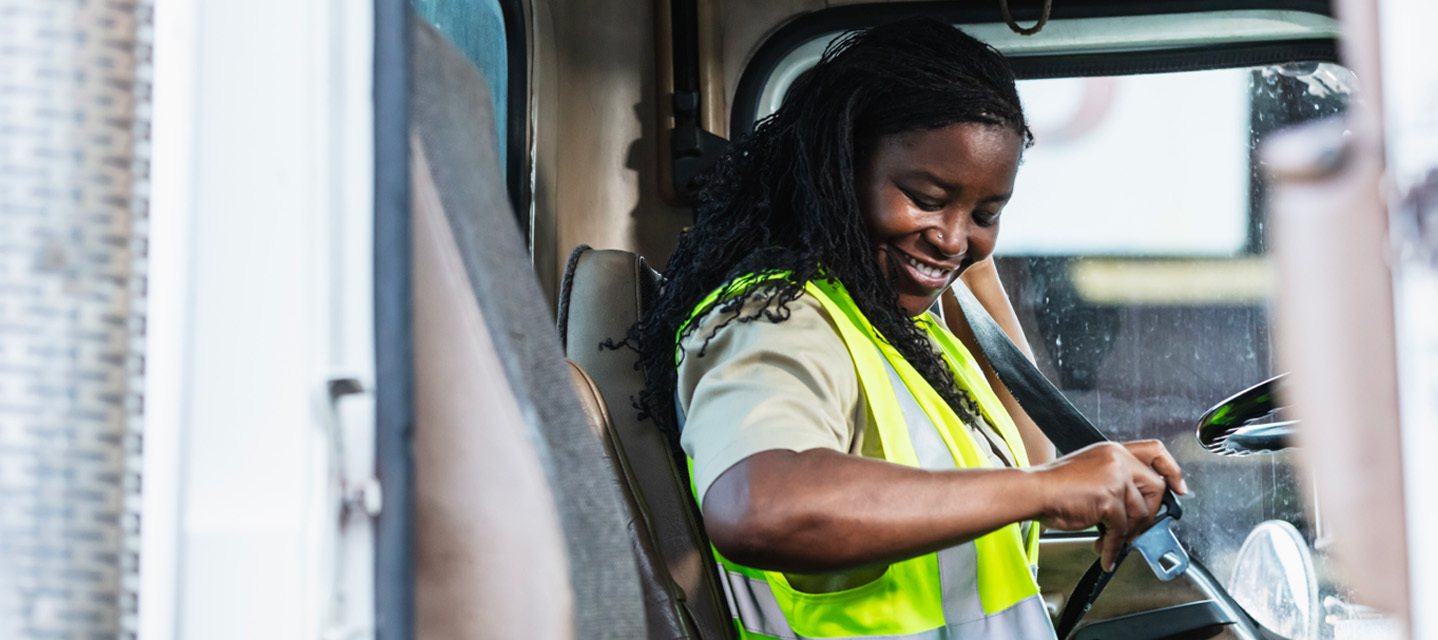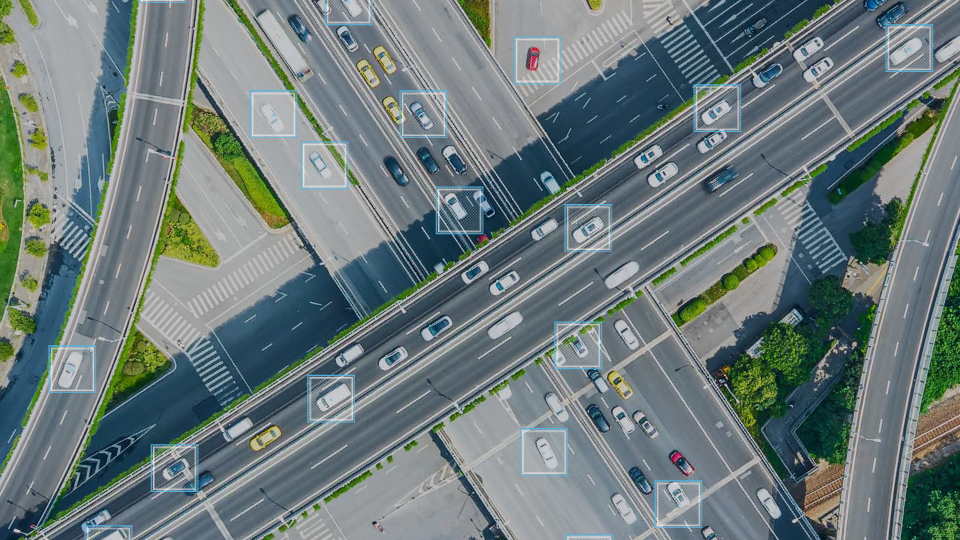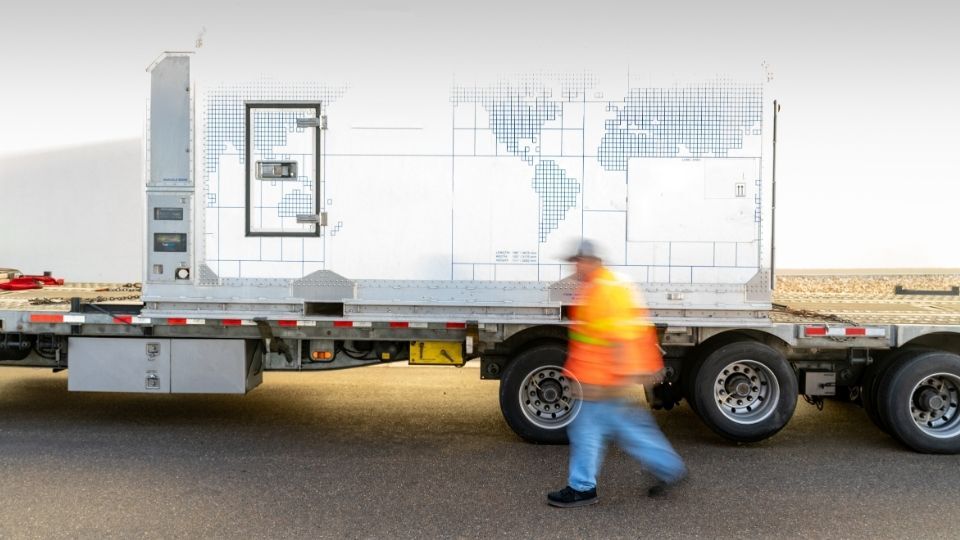Columbus smart city hackathon recap
A recap of the Columbus Smart City Hackathon which showed how private and public sectors can successfully collaborate and contribute to a rich data ecosystem.

By Mike Branch
Vice President, Data and Analytics at Geotab
Aug 21, 2024

As announced last week in this blog post, Geotab was selected by the City of Columbus to integrate its smart city insights datasets into their Smart Columbus Operating System (SCOS). As part of this integration, this past weekend I was privileged to participate in the Columbus Smart City Hackathon, and what a treat it was.
For those less familiar with the space, here is some background to add some context into what Columbus is doing to reshape the way that cities operate.
Columbus, Ohio — A Smart City that Innovates
Back in 2016, Columbus was awarded the winner of the U.S. Department of Transportation’s Smart City challenge. This granted them $40 million in funding from the U.S. Department of Transportation (USDOT) and another $10 million from Paul G. Allen Philanthropies to build out initiatives that will help this fast growing city (second in size in the midwest only to Chicago) develop and implement solutions in transportation in and around the city.
I must truly commend what Smart Columbus has done in launching SCOS and the myriad of partners that have contributed to its success. They have created an open operating system of over 1,000 data streams from live and historic data to lay the groundwork for innovative new use cases that arise out of mashing up data to solve real world problems. This, by the way, is no easy feat and oftentimes ends up with groups of people spinning wheels trying to solve problems that don’t exist.
Through a significant collaborative effort that included leadership by Jay Clouse, Ben Blanquera, Jodie Bare, and execution by the SCOS Product Development team and technologist Brian King and working in concert with 125 volunteers in the community — the team did it the right way and provided a series of use cases that were vetted by groups from the public and private sector. On top of that, coaches from all walks of life, including User Experience (UX) experts, entrepreneurs, data geeks and more, helped the groups shape their concepts.
Four Reasons Why the Smart Columbus Hackathon Was a Success
The SCOS Hackathon was the best example of how diverse groups can work together to achieve great things. The Smart Columbus Hackathon showcased talent, data and passion. Here are four reasons why the SCOS Hackathon was so outstanding and paving the way to success for Smart Columbus.
1. Passion and Collaboration
“Wow” is all I have to say. The multi-disciplinary teams that came together on their own time to put together solutions ranging from more effective distribution of food to in-need populations through to making cities more accessible for the aging demographic. In the Greater Columbus area, 312,000 people visited a food bank last year at least once and a total of 1.5 million meals were delivered.
2. Turn Key
Geotab integrated aggregate data from its over 1 million commercial vehicles for this initiative and I must say that Smart Columbus has designed SCOS to be very easy. Having grown up as a software developer, I know firsthand the complexities of designing a system to meet the needs of so many stakeholders and I was truly impressed by their accomplishments.
The onboarding process was painless and fast. The people were engaging, friendly, and genuinely wanted to use the data for good. When I first logged into SCOS Saturday morning, everything just worked and I was able to see, access, filter, visualize and manipulate not only Geotab data in new and informative ways, but do the same with the over 1,000 datasets available.
3. Talent
The talent and ideas in the room for the weekend were just outstanding. One attendee had developed a homegrown sensor that clips onto traffic lights to detect the signal status and broadcast that data to oncoming vehicles. Someone else was developing an Alexa app for proximity to the nearest food bank.
Seeing people from the general public, large private corporations, government, and small business all collaborating together to make something great for Columbus (and doing so on their own time, volunteer basis) was truly amazing.
4. Cross Pollination of Data
I live and breathe data arising from vehicles and for me to see how the teams were combining our data with other datasets in SCOS was truly incredible.
So often we live in these data silos. What SCOS has done is breakdown these silos to create a true data lake where developers and entrepreneurs alike can bring the hypothetical to reality.
For example, we all know how difficult the pothole situation is in major cities and not every pothole can be fixed. Having said that, with accessibility and age demographic data compiled through SCOS overlaid with road impediment data, you can now prioritize fixing roads in areas of the city that cause distress to the aging population and those with accessibility constraints.
Conclusion
This was my first trip to Columbus and I can truly say that the atmosphere they’ve created for innovation is inspirational. It has no doubt taken a tremendous amount of heavy lifting to get to where they are today, but with private and public sectors alike collaborating and contributing to a rich data ecosystem, this should serve as a model for how we innovate in a world rich with problems, but equally rich with talent, data, and passion.
More from this author:
Connected Cars Detect Mexico Earthquake
Geotab Data Shows Impact of Hurricane Harvey on Driving and Commercial Fleet Activity
Subscribe to get industry tips and insights

Mike Branch
Vice President, Data and Analytics at Geotab
As Geotab’s Vice President of Data and Analytics Mike Branch leads the development for solutions that enable insight from over 1.4 million connected vehicles and 30 billion telematics records that Geotab processes daily.
Table of Contents
Subscribe to get industry tips and insights
Related posts

Collision avoidance systems: How fleets prevent incidents and improve safety
December 23, 2025
5 minute read

EU Data Act overview: What it means for Geotab and telematics
October 8, 2025
1 minute read

Revolutionizing fleet management with Geotab Ace: Enabled by Google Cloud and Gemini
September 22, 2025
3 minute read

The "Computer on Wheels": What a Decade of Progress Teaches Us About Connected Mobility
September 3, 2025
2 minute read


Autonomous trucking: The impact of self-driving trucks in the freight industry + guide
July 30, 2025
6 minute read